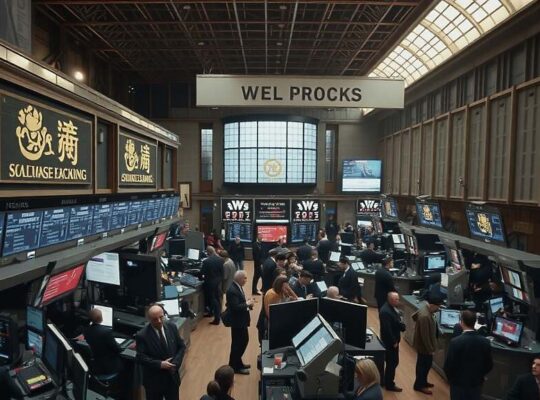Concerns are mounting within German industry regarding potential negotiations between the United States and the European Union aimed at averting tariffs. Helena Melnikov, Managing Director of the German Chamber of Industry and Commerce (DIHK), cautioned against the possibility of sector-specific agreements, particularly for influential industries like pharmaceuticals and automotive.
In comments to the Frankfurter Allgemeine Zeitung, Melnikov warned that such deals, while appearing appealing in the short term, could undermine the strategic unity of the EU. She expressed apprehension that prioritizing certain sectors could create divisions within Europe and disadvantage smaller and medium-sized enterprises (SMEs) that lack the resources to lobby effectively in Washington. “It must not simply be a hasty, minimal deal that accepts unilateral measures and yields to short-term political pressure” she stated.
The DIHK emphasizes the need for the EU to act strategically and in a unified manner, arguing that failing to do so could impose a significant cost to the European and specifically the German, economy. Over 1.2 million jobs in Germany depend on exports to the United States, where approximately 6,000 German companies have created around one million positions. The trade dispute impacts a wide range of industries, from aluminum processing and automotive suppliers to chemicals, industrial specialties, pharmaceuticals and medical technology, including numerous successful SMEs.
Melnikov urged for robust agreements that ensure fair competition and permanently de-escalate trade conflicts. She asserted that any viable agreement with the United States must apply to all sectors, be transparent, reliable and compliant with World Trade Organization (WTO) rules. The European Commission and the German government, she added, have a responsibility to ensure this occurs.
Germany, as Europe’s largest exporter and the world’s third-largest, sees the United States as a crucial market. With goods valued at €161 billion in the past year, the U.S. represents 10% of Germany’s exports and 30% of the EU’s total exports. The U.S. accounts for almost a quarter of German pharmaceutical exports, 17% for automotive and machinery and 8% for steel. A trade surplus of approximately €76 billion was recorded in 2024, representing 39% of the total EU surplus with the U.S.
The DIHK reported that the U.S. tariff announcement in April triggered a 10.5% decrease in German exports compared to the previous month. May saw a further decline of 7.7%. The DIHK warns that continued uncertainty could lead the German USA exports to drop by a billion Euros per month.












